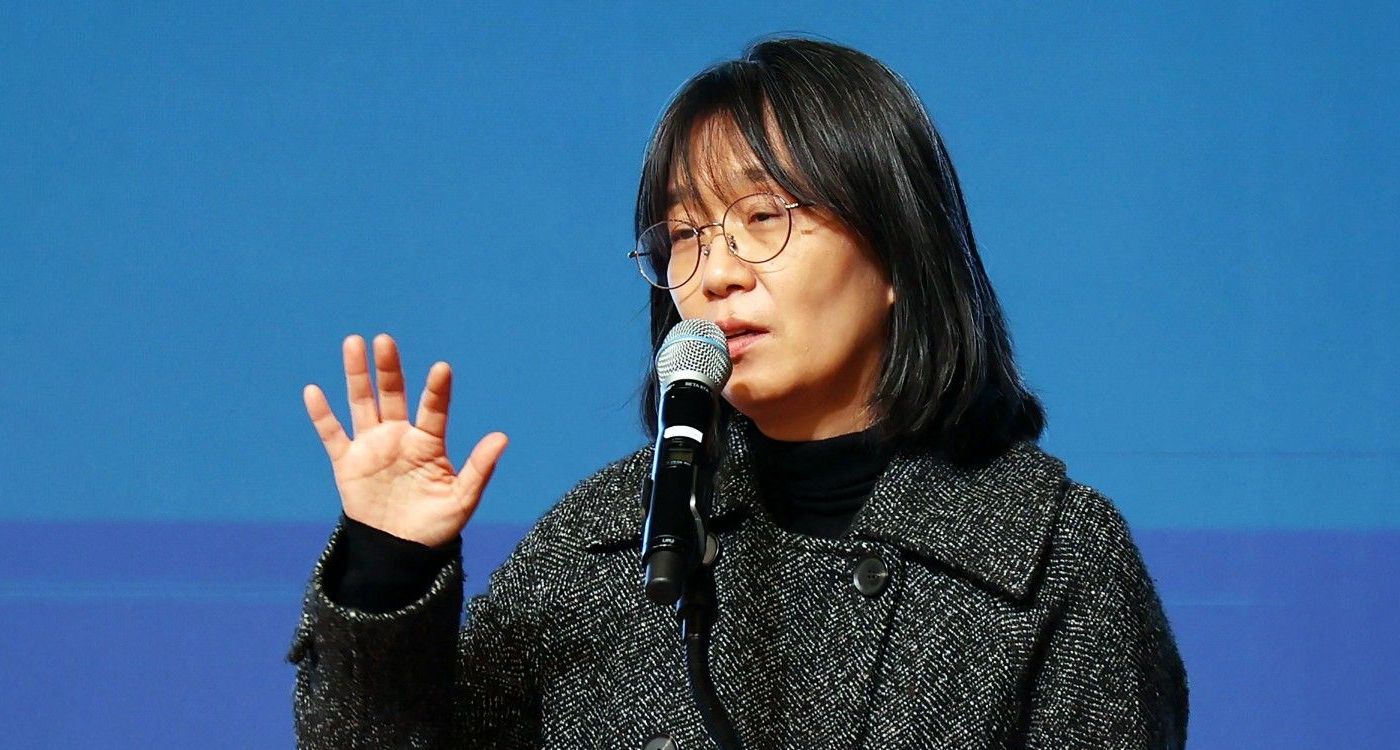
A groundbreaking revelation on the Korean literary scene since the 1990s, Han Kang, 53, has been awarded the 2024 Nobel Prize in Literature. It is the crowning achievement of an exceptional journey for this all-encompassing writer whose intense prose is haunted by the traumas of Korean history.
Born on November 27, 1970, in Gwangju, Han Kang is the daughter of writer Han Seung-won. Her childhood and writing have been forever marked by the bloody suppression of the Gwangju Uprising in her hometown in 1980, when she was just 9 years old. Although her family had moved to Seoul just before the tragedy, her accidental discovery of photos of mutilated victims at the age of 12 would haunt her for years to come.
This traumatic event and other dark chapters in Korea’s recent history permeate all of Han Kang’s work. The Jeju Massacre of 1948, the military dictatorship, and the abuses of power under President Park Geun-hye are among the many buried wounds she unflinchingly explores.
Individuals caught in the grip of great historical events—this is the common thread in her novels. Human Acts (2014) is set against the backdrop of the Gwangju Uprising, following the wanderings of a young man searching for his missing comrades and a woman confronting censorship. The White Book (2023 Prix Médicis for Foreign Literature) revisits the Jeju Massacre.
Beyond national tragedies, Han Kang delves into the hidden traumas within each individual and the resilience required to overcome them. A “correspondence between mental and physical torment,” noted the Nobel jury, praising a body of work that “exposes the fragility of human life.”
The Body as Central Metaphor
At the heart of this exploration of the depths of the human soul, the body plays a crucial role—as a physical manifestation of psychological wounds. The body, a receptacle for the scars of a violent history, mirrors the vulnerability of our condition and serves as the central metaphor throughout Han Kang’s work.
This is especially evident in The Vegetarian (2007), the novel that brought her international recognition (Man Booker Prize 2016). The protagonist’s stubborn refusal to eat and her desire to blend into the plant world are depicted through a slow physical metamorphosis. The bruised body speaks of a woman’s intimate and visceral rebellion against the social cage that entraps her.
More broadly, Han Kang makes the body a political arena in the truest sense: a space for resistance and self-assertion in the face of external demands. Through extreme transformations, the body expresses the unspeakable inner torment and, ultimately, the revolt of the individual against all forms of oppression.
For Han Kang, the body is also the ambiguous meeting point of the living and the dead, the physical and the spiritual. Many of her characters experience a troubling porousness between their own physical boundaries and those of their deceased loved ones, as if ghostly incarnations blur the borders of identity.
Suffering bodies, rebellious bodies, inhabited bodies, transformed bodies… Through these many variations, Han Kang probes the complexities of the psyche and the darkness within each of us, using the physical form as a seismograph for the soul’s tremors.
A Poetic, Precise, and Engaged Writing Style
Han Kang’s unique prose stands out for its mix of poetry and clinical cruelty. Her writing, marked by extreme precision, excels at detailing the slow decay of the body. Yet this raw realism often tips into a dreamlike fantasy, reminiscent of the world of Haruki Murakami.
Poetry, violence, politics: Han Kang’s language strikes a rare balance between these elements. Beneath the finesse of her style, the intimate portraits, and the lyrical flights, there is always a sharp critique of Korean society and its taboos, whether it be stifling conformity, the repression of the past, or feminist issues.
This engagement even led to her being placed on a “blacklist” of nearly 10,000 artists under President Park Geun-hye’s administration, who were banned from receiving public funding due to their critical viewpoints. Yet Han Kang never wavered in her commitment to examining her country’s dark sides and the shadowy recesses of the human soul.
A Total Writer, Icon of Korean Letters
Beyond being a novelist and short story writer, Han Kang is a multifaceted artist. A precocious poet, she is also an essayist, children’s author, and a knowledgeable expert on music and art history—passions that permeate her work.
This unique blend, combined with her depth of insight, has made her a “total writer,” a virtuoso of language and the depths of psychology. A singular voice that has made its mark on the world and become, through translations, an icon of Korean literature alongside Hwang Sok-yong and Ko Un.
With the Nobel Prize in Literature, Han Kang brings South Korea its first such supreme recognition. It is a powerful symbol for South Korea and for all East Asian literature. Yet beyond this national triumph, the award shines a light on a truly universal body of work.
For while Han Kang unflinchingly explores the soul of Korea and its buried torments, she speaks to us all about the pain of existence, the intimate fractures of our lives haunted by history’s crushing weight. And about the resilience of the individual in the face of the world’s madness.
Beneath her Korean roots and formal virtuosity, Han Kang’s power lies here: an intensely poetic and political voice that turns our bodies and souls into the stage for the human condition. A voice now honored with the world’s highest literary accolade.

Comments